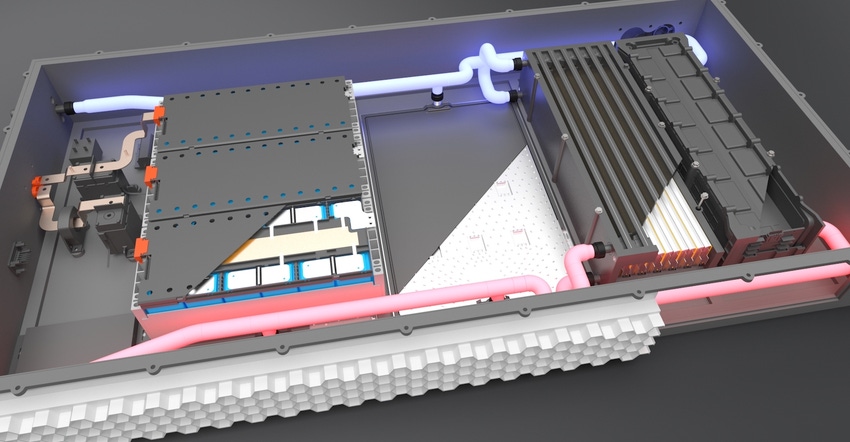Novares Develops EV Cooling Plate Using DuPont’s Plastic/Metal Bonding Technology
The patented process enables rapid hot-plate welding of aluminum to injection-molded parts made of polyamide, allowing for different coefficients of thermal expansion.
October 12, 2022

Tier 1 Novares and DuPont Mobility & Materials are co-developing a new hybrid plastic/metal cooling plate that will help OEMs extend the range and lifetime of their EV batteries. One key to this new project is the patented plastic/metal bonding technology developed at DuPont’s technology center in Meyrin, Switzerland.
Novares is a global designer and manufacturer of complex components and systems for automotive OEMs. “In collaboration with Application Development Engineer Vincent Descombes and his team of experts from DuPont’s Center of Excellence for automotive electrification and assembly techniques, the engineers at our Powertrain China Skill Center were able to overcome technical challenges and provide a disruptive solution for EV battery cooling,” said Laurent Vanholme, Expert, Powertrain Components, at Novares. “We were able to master the difference in thermal expansion between the metal and plastic parts, and re-engineer the product to be processed with conventional welding.”
The patented plastic/metal bonding technology enables the efficient production of a range of components for the automotive industry and other sectors. The technology was initially developed to support the replacement of metal EV battery cooling plates with hybrid designs that are more economical to produce and that better manage EV battery temperatures. Novares confirmed that its cooling plates meet industry requirements and enable cost reductions compared with all-metal alternatives.
Key to the success of these hybrid cooling plates is DuPont Zytel HTN high-temperature nylon, which withstands the temperatures and aggressive chemicals in these applications and has flow properties that enable complex designs.
DuPont’s bonding technology is also key. This technology — which can be integrated into the injection molding process — enables quick hot-plate welding of aluminum to injection-molded parts made of Zytel or Zytel HTN. Although the metal and the thermoplastics have different coefficients of thermal expansion, the bond between these disparate materials is strong enough to withstand extreme temperatures and aggressive chemicals.
“Congratulations to Novares for this novel development, which comes at a critical time for demand growth of BEVs. Novares’ work will help OEMs offer consumers vehicles that drive farther, with batteries that last longer,” said Gabe Knee, Marketing Manager for Vehicle Electrification at DuPont Mobility & Materials. “Our plastic/metal bonding technology is a game changer for manufacturers of automotive components and will quickly find uses in other industries.”
Visitors to K 2022 can learn about the new bonding technology and the latest in sustainable and transformative materials from DuPont in hall 6, stand C43, from Oct. 19 to 26.
You May Also Like


